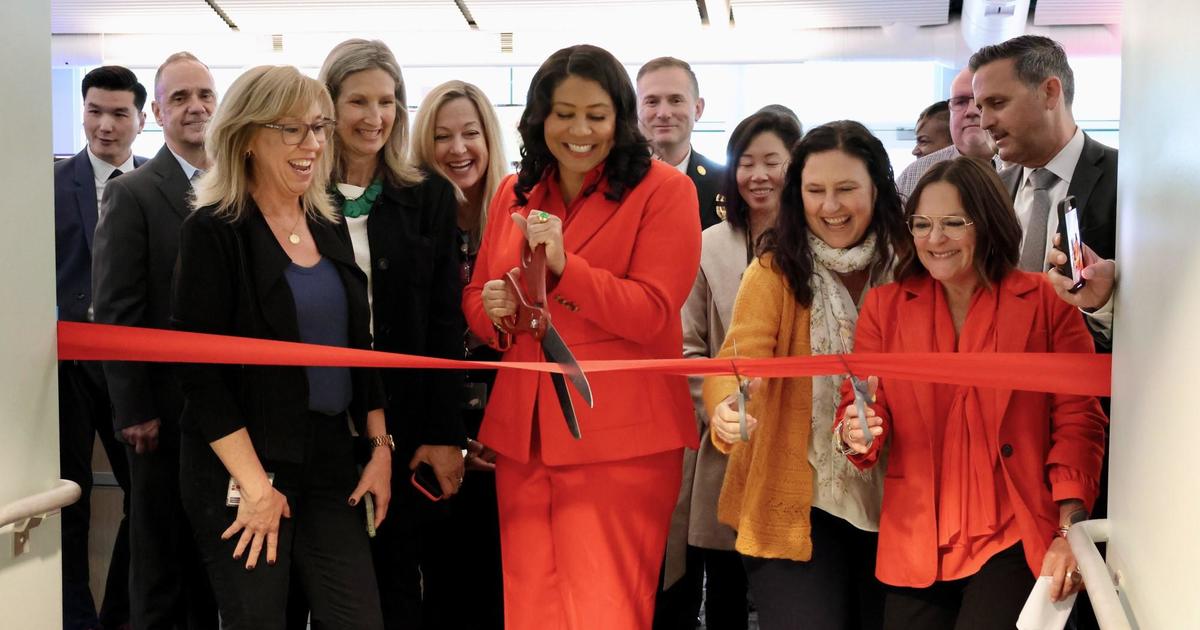Golden Gate Bridge To Lay Off Nearly 150 Employees Due To Budget Shortfall To Avoid Toll Hike
SAN FRANCISCO (CBS SF) – The Golden Gate Bridge District Board of Directors voted Friday to lay off nearly 150 employees to help shore up the district's projected budget shortfall of some $48 million due to reduced ridership during the coronavirus pandemic.
By an 11-5 vote, the board chose to eliminate 146 filled staff positions and 59 vacant ones in early January. The board elected the layoffs in lieu of raising the bridge toll by up to $2 to replace the district's lost revenue.
Dennis Mulligan is General Manager of the Golden Gate Bridge. He says Friday was a hard day for the Bridge.
"About 155 will be laid off. The total number of effected positions is a little over 200 and we have about 840 employees so, about a quarter of our workforce will be impacted," said Mulligan.
The board made their decisions Friday morning on a conference call. One of the choices was to raise the toll by two dollars making it 8 dollars to cross. That idea was rejected.
"Our board decided that, on balance, the best thing to do is to strike a balance and lay our employees off but make the effective date after the holidays and not impose a toll surcharge," said Mulligan.
The board also pushed back the effective date for the layoffs from Dec. 5, which was recommended by the board's staff, to Jan. 4 to avoid laying workers off during the holiday season.
"Sadly, it's clear we need to take affirmative action to either reduce costs or raise revenue," said Director Brian Sobel, the chair of the district's Budget and Finance Committee.
The majority of the layoffs will be those in bus and ferry operations. Union President Rodger Marenco isn't buying the logic.
"Please, give us a break! These are the men and women who have put their health, safety and lives of their families in jeopardy… these are the men and women, operators that give life to this city," said Marenco.
With no authority to levy taxes on bridge, bus or ferry users, Sobel argued that paring down the district's staff is the only way to cut costs without raising toll prices.
The district is expected to exhaust its remaining federal relief funding from the Coronavirus Aid, Relief and Economic Security Act by the end of November, at which point its coffers will be nearly empty, according to district officials.
In addition to reduced traffic from the Marin headlands into San Francisco, bus ridership is down 75 percent from normal levels while ferry ridership is down 96 percent, according to Sobel.
District officials have faced public pushback in recent weeks, as well, when they've suggested the need to raise toll prices for the district to remain solvent.
The board also heard from multiple bus operators and union representatives arguing that the district was treating them as numbers on a spreadsheet rather than dutiful employees.
"This is a horrible and difficult situation that puts our duties as directors at odds with our feelings of compassion for our employees who work hard in our transit and ferry divisions," Sobel said.
Board Director Sabrina Hernandez said it was painful to hear employees say that they feel undervalued by the district, adding that their work has not gone unnoticed.
"We recognize that you come to work, that you're committed, that you're making your own sacrifices on a day-to-day basis and face the unknown with people walking in the door and, perhaps, bringing COVID on board, exposing you and the rest of those riders on the bus," she said.
Multiple board members expressed varying levels of optimism that President-elect Joe Biden's incoming administration would be able to work out a new pandemic relief package, or that one could be passed during congress' current lame duck session.
However, the level of funding for beleaguered public transit agencies in a potential relief bill remains up in the air, Sobel said.
Board Director David Rabbitt suggested potential federal funding for the Bay Area's 25 Federal Transit Administration-eligible transit agencies would have to eclipse the $1.3 billion included in the CARES Act to adequately meet the needs of agencies like the district and BART.
"We got $1.3 billion and we thought that was a fabulous number, quite frankly," Rabbitt said. "But that won't be enough moving forward with the situation in front of us."
Should the district receive more federal funding before Jan. 4, the board would be able to call a special meeting and reduce the number of layoffs or avoid layoffs entirely, according to district officials.
The board unanimously approved a $2.1 million severance package for the employees who will be laid off, offering them four months of medical benefits for the employee and their family and four weeks of severance pay or a $600-per-week stipend for 10 weeks.
The board also voted 14-1 to temporarily reduce pay for mid-managers, deputy general managers, district officers and members of the board by 10 percent.
"The district is clearly faced with an extreme financial deficit," Board President Barbara Pahre said. "And it's our responsibility, fiduciarily, to make the difficult decisions."
Drivers who use the bridge have mixed reactions.
"I'd rather raise the price to keep the people working," said one driver.
"None of these things are going to be the best decision to solve it. Even when we do find solutions, every solutions going to create a new problem," said another.
Still, another driver didn't like the idea of tolls.
"Eight dollars to go over the bridge for anybody is just…six dollars is too much!"
© Copyright 2020 CBS Broadcasting Inc. and Bay City News Service. All Rights Reserved. This material may not be published, broadcast, rewritten or redistributed.



